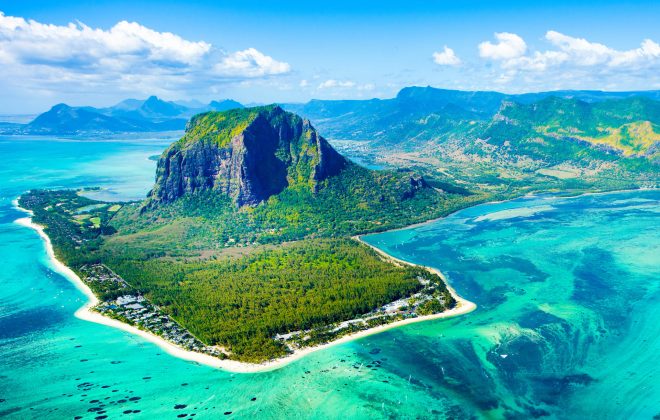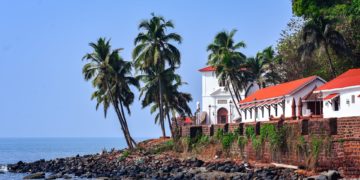 The Government of Mauritius introduced the Integrated Resort Scheme (IRS) several years ago, which was designed specifically to enable foreign citizens to purchase property on the island. Targeted at those who are looking at a resort lifestyle, the IRS is perfect for someone who is looking to buy a luxurious second home in paradise or establish themselves in this beautiful island.
The Government of Mauritius introduced the Integrated Resort Scheme (IRS) several years ago, which was designed specifically to enable foreign citizens to purchase property on the island. Targeted at those who are looking at a resort lifestyle, the IRS is perfect for someone who is looking to buy a luxurious second home in paradise or establish themselves in this beautiful island.
How Does it Work?
The IRS allows for developments of residential units on freehold land. The developments can also include leisure facilities such as a golf course, marina, shopping mall and restaurants, adding to the resort lifestyle. At a minimum, basic services such as security, maintenance, gardening and waste disposal must be provided and there is a requirement for at least 10% of the development cost to be made in social contributions that benefit the surrounding community.
The residences are focused very much on the high-end of the market, and must be either luxury villas, apartments or penthouses with a minimum purchase price of US$500,000. The majority of purchases under the scheme have sold at significantly higher than the minimum price, with luxury properties of an international standard being the primary focus. There is however a maximum amount of land that can be used for each villa sold under the IRS, with 1.25 arpents (or 0.5276 hectare) being the largest size available.
A developer must apply to the Board of Investment and obtain a certificate to develop an IRS property. They are then not able to change the plans for the development or their ownership structure without obtaining the permission of the Board of Investment.
A buyer can purchase a property under the IRS either on plan, during development or when the construction is completed. Where the purchaser acquires their rights on plan they are required to pay an initial deposit of 25% upon signing the deed, a further 10% upon completion of the the foundation, 35% at roofed-in phase, 25% upon completion and the remaining 5% when the premises is available to them.
An owner can resell their property without any minimum purchase price, however they will be restricted in who they can sell to. A Land Transfer Tax of US$50,000 along with Land Registration Duty of US$70,000 or 5% of the value of the property will also be payable by the purchaser.
Who is Eligible to Acquire Property in an IRS?
The IRS is open to both foreign citizens or companies, as well as citizens of Mauritius. The purchase payment is able to be made in any freely convertible currency, however citizens of Mauritius also have the option to pay in local currency. Any non-citizen of Mauritius or legal entity (other than a natural person) who wishes to purchase property under IRS must apply to the Board of Investment along with a range of documentation and a non-refundable fee of 10,000 rupees.
Once the property development is completed and the acquisition is finalised, a foreign purchaser and their family become entitled to reside in Mauritius for as long as they hold the property. They can apply for residency, and must pay an additional Land Registration Duty of US$70,000 or 5% of the value of the property, whichever is higher. Residency can be held by the purchaser for as long as they own the property.
What Are The Benefits of IRS?
For a foreigner, purchasing an IRS property is a great way to enter the Mauritius property market and purchase a quality second residence. It is also a convenient way to obtain residency in Mauritius, which is an attractive location for retirees and those looking for a lovely holiday home retreat.
What To Look Out For?
In the initial days of the program there were several developments that never actually delivered on their promise. So be sure to research the project and developers well before buying into them.
Other issues that are not entirely clear with the scheme is what the tax consequences of ownership are. For example, it is not clear whether capital gains on the sale of an IRS property will be taxable in Mauritius. Another tax issue may arise when the property is acquired through a company or trust. In this instance, if the company or trust confers residency to another, it is unclear whether the tax laws will require the company or trust to pay tax on a notional rental income that they “should have” received from the resident. As with any such investment, it is wise to obtain some local tax advice to ensure that you don’t incur any surprising tax costs.
If you wish to work whilst residing in the Mauritius, you may need to apply for a separate residency permit, as the residence that is conferred on a unit holder under the IRS does not necessarily allow the individual to work in Mauritius. As Mauritius is a sought after destination for financial professionals in particular, it is important to ensure that you have the right visas to establish a business from here. The requirements for permanent residency may apply in this case, and it is worthwhile seeking the advice of an immigration lawyer if this is likely to be an issue for you.
If you are planning on renting out your property, you may also be restricted by the rules of the IRS in terms of who can actually rent the property for you. It appears that properties offered for rent must go through their developer or someone designated by them. Whilst this may be convenient, it may also limit your freedom with regards to rental returns and conditions.
What Developments Have Been Completed or Are Underway?
Several developments have been completed already including ClubMed Albion, Tamarina and Anahita. There are also some developments underway including La Balise, Matala and Azuri.
If you are interested in purchasing a property in Mauritius through the IRS, the best way to get started is to take a look at the developments that are completed or underway to see what is available. You could very soon own your own little piece of paradise.
To get more information & assistance, please submit the form below and our specialist will get in touch with you at the earliest.







